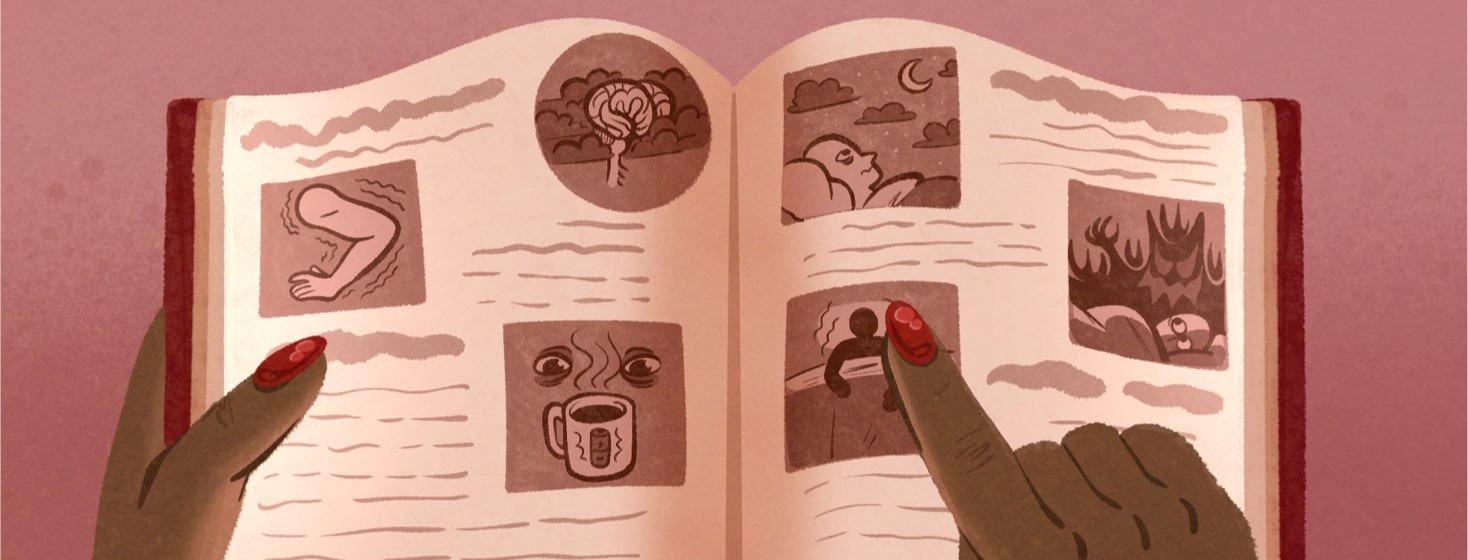7 Subtle Signs of What Might Be Narcolepsy
When most people think of narcolepsy, they immediately envision someone who falls asleep suddenly, anywhere, anytime. However, narcolepsy is much more than excessive daytime sleepiness; there are numerous other symptoms that many people are unaware of. These can be extremely subtle, and even those of us with diagnosed narcolepsy sometimes fail to realise that they are in fact correlated with our condition.
Subtle signs to ask your doctor about
How do you know when to talk to your doctor about symptoms that are potentially signs of narcolepsy? Here are 7 subtle signs that you may be overlooking.
1. Loss of muscle control or muscle weakness with strong emotions
While cataplexy can affect your whole body and cause you to collapse to the floor, it can also manifest in specific parts of your body.
For years, the only cataplectic attack I had experienced was the loss of facial muscle control whenever I laughed. It was so easy to brush off because I had no idea these were connected to other symptoms.
2. Your brain sometimes feels 'foggy'
Brain fog can happen to anyone, but it is also a common experience among people with narcolepsy, and those who are undiagnosed often don't acknowledge it for what it is. It can be easy to chalk it up to "daydreaming" or being distracted. It’s important to be aware of how often this happens.
3. Being tired no matter how much you sleep
What if you find yourself drinking a coffee and then suddenly needing another one within an hour?
Your body might feel as though it experiences moments of abruptly shutting down regularly throughout the day as though all of its energy has been drained. You may or may not fall asleep, but either way, this can be indicative of a bigger problem.
4. Inability to sleep through the night
Before I was diagnosed, I was already aware that sleeping through an entire night was extremely rare for me. But I had no idea just how bad it actually was. It was only when I did a sleep study that it showed me I woke up 37 times throughout the night! Disrupted sleep can be another subtle indicator of narcolepsy.
5. Vivid and terrifying nightmares
When I was 15 years old, the nightmares started. I used to joke about writing them down and making horror movies out of them because they were that bad.
I had absolutely no idea that these, too, could be a sign of having a sleep disorder.
6. Recurring sleep paralysis
Hand-in-hand with the nightmares came the episodes of sleep paralysis. Again, anyone can experience sleep paralysis (often followed by hallucinations) but for people with narcolepsy, it can happen on a much more frequent basis.
7. Frequent bouts of insomnia
A lot of people do not associate insomnia with narcolepsy. The idea they have is that people with narcolepsy don’t struggle to sleep, that they only have the opposite problem.
However, that is not the case at all. As much as we struggle to stay awake during the day, we might also struggle to sleep at night.
How do you know if you have narcolepsy?
Perhaps because many of these symptoms aren’t exclusive to narcolepsy, many of them aren’t seen as red flags.
While these are all symptoms of narcolepsy, it is crucial to remember that having just 1 or a few of these signs alone might not necessarily indicate that you have narcolepsy. If you are experiencing things that disturb you or impact your quality of life, it is always best to talk to a doctor or sleep specialist who can help you pursue a diagnosis.
Have you experienced any of these subtle signs of narcolepsy? Did any surprise you or lead you to a diagnosis? Share with us in the comments below!

Join the conversation